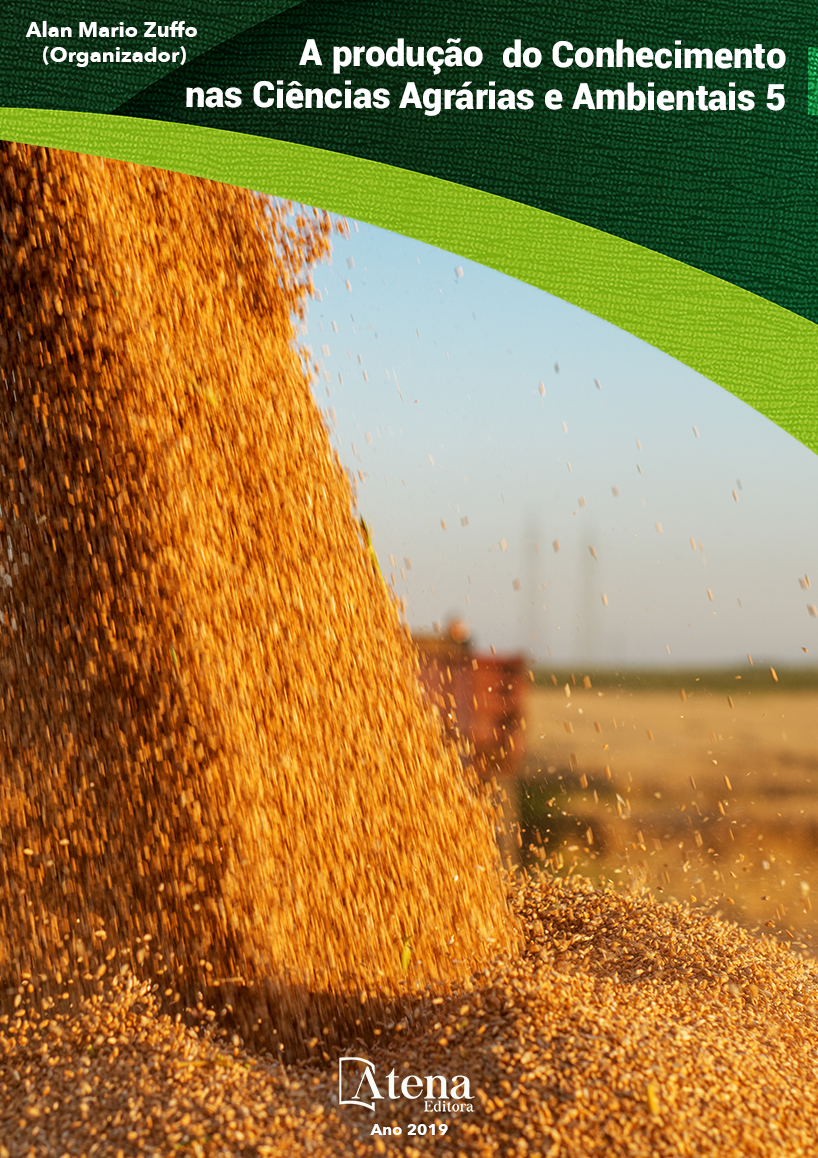
VETIVER (Chrysopogon zizanioides L.): UM AGENTE FITOTÓXICO
A necessidade constante de
introduzir novos herbicidas impulsionou a
busca pela utilização de substâncias químicas
naturais como uma alternativa mais sustentável
para o cultivo agrícola. Os metabólitos
secundários produzidos por plantas constituem
uma fonte de substâncias bioativas de interesse
científico devido suas variadas funções, entre
elas o potencial efeito alelopático. O objetivo
deste trabalho foi avaliar o efeito do óleo
essencial de vetiver comercializado na Índia,
nas concentrações de 1500, 750, 375, 187,5
e 93,75mmol L-1, no desenvolvimento inicial
das plântulas de alface e sorgo, tendo como
controles negativos, água e diclorometano,
e o glifosato como controle positivo. O óleo
essencial possui o monoterpeno β-vetivenene
como composto majoritário e o adulterante
metil cedrene cetona em sua composição. A
concentração mais elevada do óleo essencial
de vetiver foi responsável por 50,96% de
inibição na germinação de alface e inibiu,
assim como a concentração de 750mmol L-1, o
desenvolvimento das plântulas, diminuindo seu
crescimento radicular e aéreo, efeito similar ao
observado para o herbicida comercial glifosato.
VETIVER (Chrysopogon zizanioides L.): UM AGENTE FITOTÓXICO
-
DOI: 10.22533/at.ed.88319260425
-
Palavras-chave: alelopatia, aleloquímicos, bioherbicida, monoterpenos, plantas modelos
-
Keywords: allelopathy, allelochemicals, bioherbicide, monoterpenes, plant models.
-
Abstract:
The constant necessity to
introduce new herbicides has boosted the
search for the use of natural chemicals as a more environment friendly alternative
to agricultural cultivation. The secondary metabolites produced by plants constitute
a source of bioactive substances of scientific interest due to their varied functions,
among them the potential allelopathic effect. The objective of this work was to evaluate
the effect of vetiver essential oil marketed in India at the concentrations of 1500, 750,
375, 187.5 and 93.75 mmol L-1 in the initial development of lettuce and sorghum,
having as negative controls, water and dichloromethane, and glyphosate as a positive
control. The essential oil has the monoterpene β-vetivenene as major compound and
the adulterant methyl cedrene ketone in its composition. The highest concentration of
vetiver essential oil was responsible for 50.96% inhibition on lettuce germination and
inhibited, as well as the concentration of 750mmol L-1, the development of seedlings,
reducing root and aerial growth, similar to observed for the commercial glyphosate
herbicide.
-
Número de páginas: 15
- Sônia Maria da Silva
- Thammyres de Assis Alves
- Vânia Maria Moreira Valente
- Milene Miranda Praça-Fontes
- Patrícia Moreira Valente


